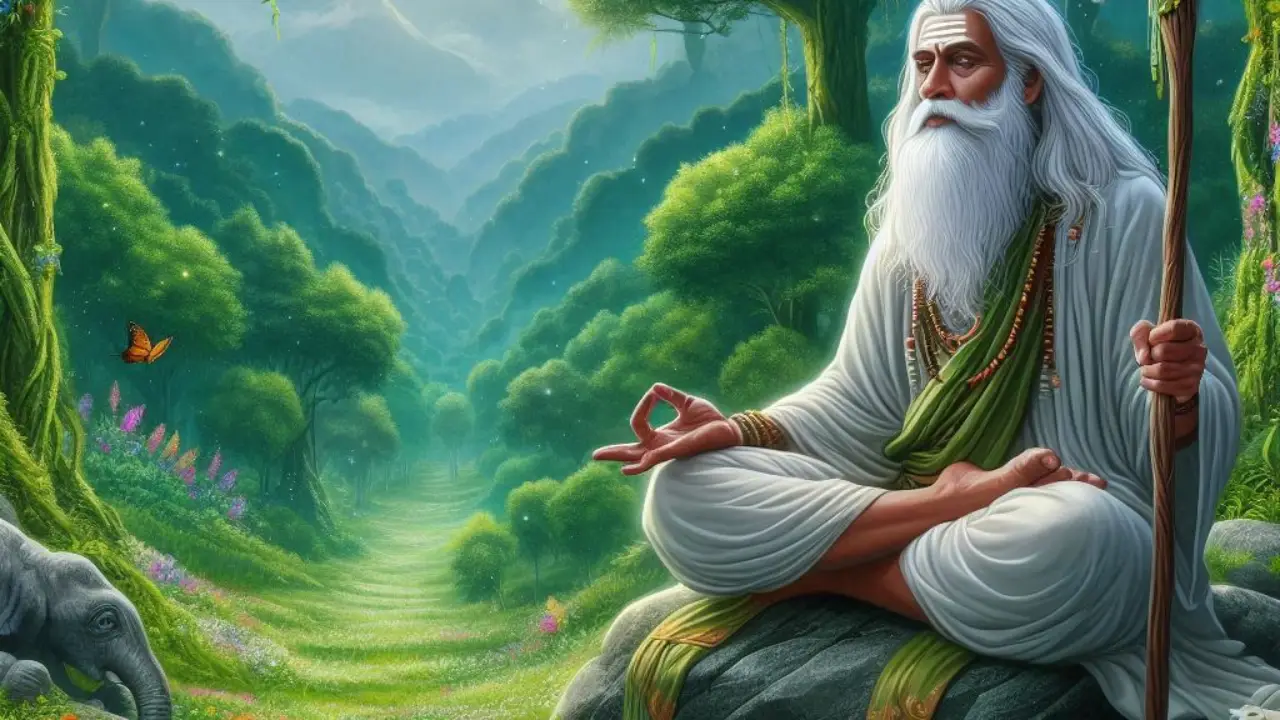From the ancient times of sages and rishis, one name stands out as a beacon of knowledge and wisdom—Sage Bharata. His legacy is so profound that it gave India one of its most cherished names, “Bharat.” This post explores the fascinating story of Sage Bharata and the origins of the name “Bharat.”
Who Was Sage Bharata?
Sage Bharata, also known as King Bharata, stands out as a legendary monarch in ancient Indian scriptures. Texts like the Mahabharata and the Puranas prominently feature his story. Bharata, the son of King Dushyanta and Shakuntala, has his tale immortalized by poet Kalidasa in the play “Abhijnanashakuntalam.”
The Birth of Bharata
The story of Bharata’s birth is as dramatic as it is divine. His parents, Dushyanta and Shakuntala, met under enchanting circumstances in the forest. Dushyanta, a powerful king, fell in love with Shakuntala, a hermit’s daughter, and married her. However, due to a curse, Dushyanta forgot about Shakuntala until much later. When they reunited, Shakuntala presented their son, Bharata, who was destined to become a great ruler.
Bharata’s Reign and Legacy
Bharata grew up to be a wise and just king, ruling with compassion and strength. Bharata’s reign brought prosperity and peace. His exemplary governance earned the land he ruled the name “Bharatavarsha” or simply “Bharat.” This name has endured through millennia, symbolizing the unity and cultural richness of India.
The Symbolism of the Name “Bharat”
The name “Bharat” carries deep symbolism and significance. It represents the cultural and spiritual heritage of India. Derived from the Sanskrit root “Bhr,” meaning to bear or sustain, Bharat signifies a land that sustains and nurtures its people. It’s a name that resonates with the ancient traditions, wisdom, and values passed down through generations.
Sage Bharata in the Mahabharata
Bharata intricately weaves his story into the epic Mahabharata. As an ancestor of the Pandavas and Kauravas, the two warring factions, he holds a significant place. The Bharata dynasty, named after him, is celebrated for its valor, righteousness, and adherence to Dharma (moral duty). His legacy is so impactful that the epic itself bears his name, highlighting his lasting influence on Indian culture and history.
Bharata’s Contribution to Indian Arts and Culture
Bharata played a significant role in Indian arts and culture as a king. Sage Bharata Muni, who is credited with the ancient treatise “Natya Shastra,” laid the foundation for Indian classical dance and drama. This text, though written by a different Bharata, further solidifies the name’s association with cultural and artistic excellence in India.
Lessons from Bharata’s Life
Bharata’s life offers timeless lessons in leadership, justice, and devotion to duty. His story teaches us about the importance of wisdom, compassion, and maintaining a strong sense of Dharma. These values are as relevant today as they were in ancient times, providing a moral compass for individuals and leaders alike.
The Modern Relevance of “Bharat”
Today, the name “Bharat” continues to inspire and unify the people of India. It serves as a reminder of the country’s rich heritage and the values that have shaped its civilization. Whether referred to as India or Bharat, the essence remains the same—a land of diverse cultures, languages, and traditions bound together by a shared history and destiny.
Bharata in Popular Culture
The legacy of Sage Bharata has permeated popular culture as well. His story has been retold in various forms, including literature, theatre, and film. These retellings keep the legend alive, ensuring that each generation understands the historical and cultural significance of the name “Bharat.”
A Call to Embrace Our Heritage
As we delve into the story of Sage Bharata and the origins of the name “Bharat,” it’s essential to reflect on our heritage and the values that define us. Embracing our history enriches our identity and strengthens our sense of belonging. Let’s celebrate the legacy of Sage Bharata and honor the name “Bharat” by upholding the principles of wisdom, justice, and unity in our lives.
What does the name “Bharat” mean to you? How do you connect with the story of Sage Bharata? Share your thoughts and reflections in the comments below. Let’s keep the conversation alive and continue exploring the rich tapestry of our cultural heritage together.

